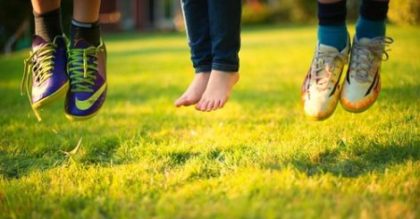
 )
)There’s COVID-19 research, and then there’s meta COVID-19 research–that is, research about research in the era of COVID-19. Scientists, specifically principal investigators, were surveyed about time spent on various job activities. No one will be surprised to learn that productivity has been lost, particularly in disciplines dependent on shared equipment and/or student labor. Likewise, it is not shocking to discover that parents who have to care for small children are disproportionately affected. It’s good to confirm these things; the world can defy expectations sometimes. More importantly, it is good to quantify them so that efforts to intervene and remediate disparities can be assessed for effectiveness.
I wanted to share partly because I expect these results describe the experiences of some of you, and I wanted you to know your struggles are recognized and shared. And while this study focuses on scientists (a population of convenience, perhaps?), I have little doubt that similar trends exist in other academic disciplines, and in sectors outside of academia. Personally, I have been grateful that my kids are old enough that they are largely self-sufficient when it comes to online school, and my wife has taken the lead on managing their schedules. But I remember their younger days and I have lots of sympathy for parents of little ones navigating the current situation.
Particularly for those early in their career, I also thought it might be good to have a conversation about how to account for these disruptions in subsequent evaluations. What adjustments need to be made in hiring practices, tenure decisions, grant funding, etc.? How do we help ensure a cohort isn’t completely left behind and that parents are adequately represented among future faculty? As this news story about the study indicates, seemingly obvious solutions may not work as desired. Prior work has shown that adjusting tenure clocks to account for raising children did not have the intended impact on gender equality. So we may need to be more creative, but there seems to be a desire to address these specific needs.
Do any of you have stories of prior success implementing policies or programs to accommodate parents, particularly mothers, so that their careers are not adversely impacted by childbirth? Are there methods from those that could be applied to the current circumstances? Is anyone’s department already discussing potential adjustments to career milestones or hiring criteria? I’d also be interested to know if anyone would care to take up a different perspective, that standards should be standards and that a particular sort of career in science is not essential in a way that obligates us to make it accessible. As someone who didn’t make the cut for that sort of career myself, I recognize that I may not be the best judge of how to oversee such careers for others.
Andy has worn many hats in his life. He knows this is a dreadfully clichéd notion, but since it is also literally true he uses it anyway. Among his current metaphorical hats: husband of one wife, father of two teenagers, reader of science fiction and science fact, enthusiast of contemporary symphonic music, and chief science officer. Previous metaphorical hats include: comp bio postdoc, molecular biology grad student, InterVarsity chapter president (that one came with a literal hat), music store clerk, house painter, and mosquito trapper. Among his more unique literal hats: British bobby, captain’s hats (of varying levels of authenticity) of several specific vessels, a deerstalker from 221B Baker St, and a railroad engineer’s cap. His monthly Science in Review is drawn from his weekly Science Corner posts — Wednesdays, 8am (Eastern) on the Emerging Scholars Network Blog. His book Faith across the Multiverse is available from Hendrickson.

Leave a Reply